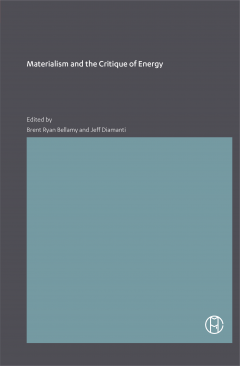Doctoral students in the department’s Production of Literature program are turning out exciting research.
David Thomas has an essay in the newly published Materialism and the Critique of Energy, a collection that brings together cultural, economic, and historical approaches to an engagement between Marxist critiques of capital and questions of energy infrastructures, regimes, and resources. Thomas’s article takes a close look at the United Kingdom during the 1970s to examine the emergence of “electroculture.” Mapping class struggle, dispossession, and state violence onto a history of oil, Thomas makes the case that labor politics and energy politics are deeply intertwined.
The publisher’s affiliated journal, Mediations, is also running this essay as part of a special issue dedicated to prompting the collection.
John Coleman has an essay entitled “Making Readers” forthcoming in the journal Wasafiri (vol. 33, no. 3, 2018). It analyzes BookTrust, a reading charity receiving funding from Arts Council England to act mainly as a conduit for commercial publishing firms, distributing millions of free books every year to students in England, Wales, and Northern Ireland. In recent years the charity has promoted books written by or about people from minority racial, ethnic, and faith backgrounds so as to facilitate learning about multiculturalism for schoolchildren. The charity promotes this programming as a conduit to the overarching policy aims of fostering social cohesion by widening access to arts and cultural participation throughout the creative economy. Coleman argues that the capacity of BookTrust to meet the requirements of educational policies of cultural diversity are determined by recent innovations in the commodification of literature, particularly, the marketing of race and ethnicity by commercial publishing firms which are, in an ongoing process, rationalizing the acquisition, production and circulation of books by minority authors in the UK. This analysis of how BookTrust markets multicultural literary texts provides a window onto how the products of these kinds of practices reach their intended markets via educational policy reforms first initiated by Britain’s New Labour government (1997-2010), but continuing now, as well as via established techniques for the dissemination of literature by minority authors in a corporatised book industry. Watch this space for Coleman’s essay.
